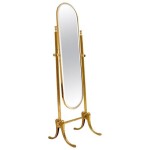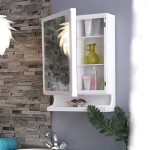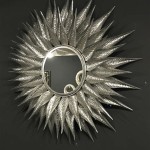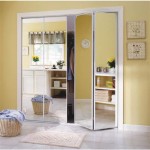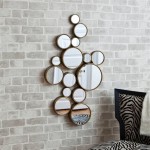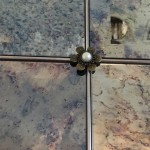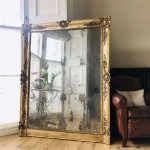Reclaimed Wood Mirror Frame DIY
Creating a custom frame from reclaimed wood adds a touch of rustic charm and personality to any mirror. This project offers a sustainable and cost-effective way to enhance home décor while repurposing materials. This article provides a comprehensive guide to constructing a reclaimed wood mirror frame, covering material selection, tool requirements, and the step-by-step building process.
Sourcing Reclaimed Wood
Locating suitable reclaimed wood is the first step. Potential sources include old barns, pallets, flooring, and furniture. When selecting wood, consider the desired aesthetic. Weathered, grey wood imparts a rustic look, while sanded and refinished pieces offer a more polished appearance. Ensure the wood is free from rot, insect damage, and loose nails or staples before use.
Necessary Tools and Materials
Gathering the necessary tools and materials beforehand streamlines the building process. Essential tools include a miter saw, measuring tape, wood glue, clamps, a nail gun or hammer and nails, safety glasses, and sandpaper. Materials required are the reclaimed wood, a mirror, mirror adhesive, and wood finish (optional).
Preparing the Reclaimed Wood
Preparation of the reclaimed wood is crucial for achieving a professional finish. Begin by cleaning the wood to remove dirt, debris, and loose paint. Sanding the wood creates a smooth surface for finishing and ensures even adhesion of the glue. The level of sanding depends on the desired look: minimal sanding preserves the wood’s character, while thorough sanding yields a refined appearance. Cut the wood into four pieces, two for the vertical sides and two for the horizontal sides, ensuring they are slightly longer than the corresponding mirror dimensions. The excess length allows for a slight overhang, creating a framed effect.
Creating 45-Degree Angle Cuts
Accurate miter cuts are essential for creating seamless corners. Using a miter saw, cut 45-degree angles on each end of the four wood pieces. The angles should be oriented so that when joined, they form a 90-degree corner. Double-check measurements and angles before making each cut to ensure accuracy. Precision in this step is crucial for the frame's overall appearance.
Assembling the Frame
Once the wood pieces are cut, assemble the frame by applying wood glue to the mitered edges. Join the pieces to form a rectangular frame, ensuring tight, flush corners. Use clamps to hold the frame together while the glue dries, typically for the time recommended by the glue manufacturer. This ensures a strong and stable bond.
Securing the Frame
After the glue dries, reinforce the frame's structure with nails or brads. A nail gun offers speed and efficiency, but a hammer and nails work equally well. Drive nails into the corners and along the joints, countersinking them slightly to create a smooth surface. Fill the nail holes with wood filler for a seamless finish if desired.
Finishing the Frame (Optional)
Applying a finish to the frame enhances its appearance and protects the wood. Various finishes are available, including paint, stain, and varnish. The choice depends on the desired aesthetic and the type of reclaimed wood. Follow the manufacturer’s instructions for application and drying times. Allow the finish to dry completely before attaching the mirror.
Attaching the Mirror
Once the frame is complete and the finish has dried, attach the mirror using mirror adhesive. Apply the adhesive to the back of the mirror, following the manufacturer's instructions. Carefully center the mirror within the frame and press firmly. Use mirror clips or supports to secure the mirror in place while the adhesive cures. This prevents the mirror from shifting and ensures a secure bond.
Mounting the Mirror
After the adhesive has fully cured, the mirror is ready to be mounted. Various mounting methods are available, including D-rings, wire hangers, and French cleats. Choose a method appropriate for the weight and size of the mirror. Ensure the mounting hardware is securely attached to the frame and the wall to prevent damage or accidents.

Diy Reclaimed Wood Frames The Space Between

Diy Reclaimed Wood Frames The Space Between

Diy Reclaimed Wood Frames The Space Between

Diy Wood Frame Mirror Makeover With Hooks Funky Junk Interiors

Diy Wood Frame Mirror Makeover With Hooks Funky Junk Interiors

Stunning Diy Bedroom Projects

Diy Reclaimed Wood Frames The Space Between

Diy Reclaimed Wood Frames The Space Between

Diy Rustic Wood Frame Mirror Amanda Katherine

Diy Wood Frame Mirror Makeover With Hooks Funky Junk Interiors Barn Framed Reclaimed

